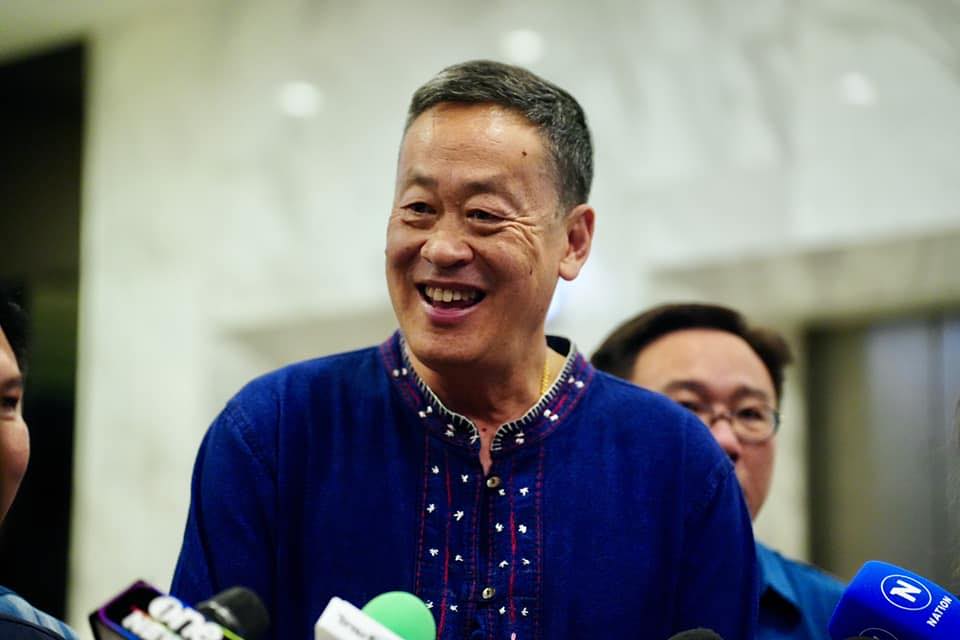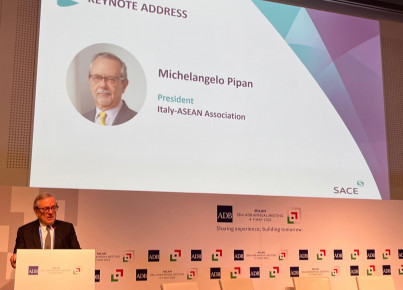After a prolonged period of political uncertainty, Thailand has its new prime minister: Srettha Thavisin, a former U.S.-educated real estate tycoon who has always been close to the Shinawatra family. He is the epitome of a government that unites Pheu Thai, conservatives and the military
By Francesco Mattogno
One hundred days after the May 14 elections, Thailand has elected its new prime minister. With 482 votes in favor (including 152 senators), 165 against, and 81 abstentions, in the joint House and Senate vote on August 22 Pheu Thai candidate Srettha Thavisin passed the necessary threshold of 374 seats and became the 30th premier in Thai history.
His nomination was approved by King Maha Vajiralongkorn, who thus made the outcome of the parliamentary vote official and paved the way for the formation of the new government. Which will not be a "change" government. Or at least not of the change voted for by the relative majority of Thais, who at the polls had awarded Move Forward, the country's most progressive and radical political formation, as the party with the most seats in the lower house (151).
Instead, Pheu Thai, which came second in the elections (141 seats), will lead the new executive. In a turn that was as abrupt as it was announced, in early August the party founded by Thaksin Shinawatra abandoned its coalition project with Move Forward and initiated a series of negotiations to form an alliance with political forces linked to the conservative and pro-military establishment.
The successful outcome of the talks resulted in an 11-party, 314-seat coalition encompassing much of the outgoing government led by former coup general Prayut Chan-o-cha, with the exception of the Democratic Party. In fact, the alliance that supported Srettha includes the Bhumjaithai (BJT) of former Health Minister Anutin Charnvirakul, who may become the next interior minister, and the military's two parties, the Palang Pracharat (PPRP) of the other coup general Prawit Wongsuwon and the United Thai Nation (UTN) of outgoing premier Prayut, who has, however, announced that he plans to retire from politics.
In fact, Pheu Thai has struck deals with what until last May 14 were its bitterest enemies. Over the past two decades, the Shinawatra party has been ousted from power twice by army coups (2006 and 2014), and its leaders have been convicted of corruption and abuse of power by military-linked courts. The BJT, on the other hand, came into being in 2008 after an internal split within Pheu Thai, and has since become a symbol of betrayal and affiliation with conservative power for Reds supporters. Moreover, 16 out of 25 MPs from the same Democratic Party, once Shinawatra's number one opponent and now in the midst of a crisis, voted in favor of Srettha's nomination, contravening the party's line of abstention.
This is a reversal of what was promised before the election. At the height of the election campaign, Srettha-as well as all the Pheu Thai leadership-had ruled out an alliance with the military. Instead, on Monday, before the vote, he asked Thais to "forget" those words for Thailand's sake. Pheu Thai claims it had no alternative, since the Senate (appointed by the military) would have prevented any coalition including Move Forward from governing. To form an executive, therefore, one had to surrender to compromise with conservative forces in the name of "national reconciliation." And so it did.
Despite skepticism, the new prime minister pledged that the coalition would abide by Pheu Thai's electoral program, which made the economy a "priority" to go along with more progressive and democratic policies, such as amending the constitution and ending compulsory conscription.
Srettha is the main promoter of the "digital wallet," a 10,000 baht (270 euros) subsidy promised by his party to everyone over the age of 16, which would be in addition to an increase in the minimum wage. He said in the election campaign that he would push to expand Thailand's export markets in Africa and the Middle East and to forge more free trade agreements (above all, the one with the European Union), saying he also opposed decoupling between China and the United States. "I don't believe in working with individual nations," he said in an interview with the Nikkei.
A member of a well-connected family within the Thai elite, Srettha studied economics and finance in the United States (he graduated from the University of Massachusetts and took a master's degree at the Claremont Graduate School in California), and once he returned to Thailand in the 1990s he became chairman of Sansiri, a family business that became one of the largest companies in the Thai real estate industry. In contrast to many of his fellow entrepreneurs, Srettha has often exposed himself politically on social media and beyond, becoming one of the trusted men of former premiers Thaksin and Yingluck Shinawatra. In November last year, he finally joined Pheu Thai, stepping down as CEO of Sansiri two months before the elections.
Amid the prolonged political crisis, the country's GDP grew only 1.8 percent in the second quarter of 2023, well below expectations. Therefore, according to Bloomberg, given his business career and promises to stimulate the Thai economy through public spending, investors should welcome Srettha's appointment as premier. And there is talk of his possible dual role as finance minister as well. Different is the talk on the purely political level. The new prime minister has no political experience, nor a strong support base both within the party and in the electorate. And this is no small detail for a premier who will have to hold up a potentially very fragile and unpopular coalition (a poll of a sample of 1,310 citizens recorded about 63 percent disapproval).
Despite the decent result at the polls, for the first time in 20 years Pheu Thai did not win the election. This makes Srettha a much weaker prime minister than his predecessors elected with the Shinawatra party, who came to the seat with huge popular mandates and were surrounded by a kind of aura of invincibility. And in a further threat to his legitimacy, Srettha has been accused of tax evasion and malpractices during his time at Sansiri. The new premier will thus have to prove that he can control a government in which Pheu Thai, despite being the largest party in the coalition, is actually outnumbered by potential deals between BJT, PPRP and UTN, which together have 147 seats. One wonders then how well Srettha will be able to implement the promised policies, and whether moving behind him may be a far more navigated figure like Thaksin, moreover, who has just returned from exile.






